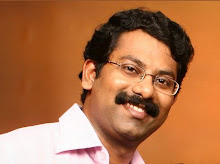General Pervez Musharaff (1999-2008)
Whadda Empire...! whadda Dictator... Whadda Life....!
Musharaff seized power in 1999 by effecting a military coup d'état and has suspended the constitution of Pakistan twice since then. After announcing his intention to combat extremists, Western countries (including the United States and the United Kingdom) have switched from sanctions to active support through military and monetary aid. He took power on October 12, 1999, ousting Nawaz Sharif, the elected Prime Minister, dismissed the national and provincial legislative assemblies, assumed the title of Chief Executive and became Pakistan's de facto head of government, thereby becoming the fourth Army chief of Pakistan to have assumed executive control. Later in 2001, Musharraff appointed himself to the office of President of Pakistan.
On November 3, 2007, only days before a bench of the Supreme Court of Pakistan was to decide on a petition challenging the constitutional validity of his re-election as president in the controversial October 2007 elections, he, as Chief of Army Staff, suspended the constitution, jailed several justices and lawyers of the supreme court including Chief Justice Iftikhar Muhammad Chaudhry, ordered the arrest of political dissidents and human rights activists, and shut down all private television channels. On November 3, 2007, Musharraf declared a state of emergency in Pakistan which lasted until December 15, 2007. During this time, the constitution of the country was suspended.
On November 24, 2007, the Pakistan Election Commission confirmed his re-election as President.
In 1961, he entered the Pakistan Military Academy at Kakul, graduating 11th in his class. He was commissioned in 1964 in the Artillery Regiment. Later he joined the Special Services Group and was posted to Field Artillery Regiments. A graduate of the Command and Staff College, Quetta, and the National Defence College, Rawalpindi, Musharraf is also a graduate of the Royal College of Defence Studies of the United Kingdom. Musharraf revealed in his memoirs that in 1965 he was charged with taking unauthorized leave and was about to be court-martialed for it, but was excused due to the war with India
Musharraf participated in the Indo-Pakistani War of 1965 as the 2nd Lieutenant in the 16 (SP) Field Artillery Regiment. Later, in the Indo-Pakistani War of 1971 he served as a Company Commander in the Special Service Group (SSG) Commando Battalion. On promotion to the rank of Major General on January 15, 1991, he was assigned the command of an Infantry Division. Later, on promotion to Lieutenant General on October 21, 1995 he took over command of 1 Corps, the elite strike Corps. In 1998, following the resignation of General Jehangir Karamat, he was personally promoted over other senior officers by Prime Minister Nawaz Sharif, as an obedient officer and took over as the Army Chief of Staff and Chairman of the Joint Chiefs of Staff.
From May to July 1999, Pakistan and India were involved in the Kargil Conflict, an armed conflict between the two countries in the Kargil district of Kashmir. It was planned and executed during General Musharraf's term as the Pakistani Army Chief of Staff under Prime Minister Sharif.
Sharif has claimed that Musharraf was solely responsible for the Kargil attacks.[16] On the other hand, Musharraf claims that the decision was made by Sharif, who was under United States pressure. Ex-CENTCOM Commander Anthony Zinni, and Sharif, have stated that Musharraf requested that the Prime Minister withdraw Pakistani troops from Kashmir.
Musharraf's role in planning the Kargil attacks was criticized by one British journalist for showing "a shocking lack of strategy."
Casualties on both sides had been particularly heavy in Kargil. Musharraf had good relations with Jehangir Karamat from whom he took over the command. Soon after the coup, one of the first to be appointed as minister was journalist Maleeha Lodhi who was close to Jehangir Karamat. Also recruited was Shaukat Aziz (who served as the country's Prime Minister later) who volunteered to improve the economy. Western banks rescheduled Pakistani loans, which had been subjected to economic sanctions since Pakistan conducted atomic testing.
Pervez Musharraf resigned from the Army on 28 November 2007 in an attempt to regularise his position as President.
On August 7, 2008, the Pakistan Peoples Party and the Pakistan Muslim League (N) agreed to force Musharraf to step down and begin his impeachment. Asif Ali Zardari and Nawaz Sharif, announced sending a formal request or joint charge sheet that he steps down, and impeach him through parliamentary process upon refusal. Musharaf, however, said: “I will defeat those who try to push me to the wall. If they use their right to oust me, I have the right to defend myself."
Pakistan's ruling coalition, on August 16, gave Musharraf Tuesday deadline to resign. No president has ever been impeached in Pakistan's 61-year history. Presidential aides, however, said Musharraf refused to leave office under pressure.
On August 18, 2008, in a speech defending his record, Musharraf announced that he has resigned. In the August 18 negotiations which failed over the legal technicalities, he sought immunity from prosecution if he resigns before the impeachment proceedings
The Best part are the Final WORDS of Musharaf :
"After viewing the situation and consulting legal advisers and political allies, with their advice I have decided to resign. I leave my future in the hands of people. Not a single charge in the impeachment can stand against me. No charge can be proved against me because I never did anything for myself, it was all for Pakistan. On the map of the world, Pakistan is now an important country, by the grace of Allah. Whether I win or lose the impeachment, the nation will lose. They don’t realize they can succeed against me but the country will undergo irreparable damage. My resignation will go to the speaker of the National Assembly today.” In an emotional one-hour speech, Musharraf raised his clenched fists to chest height, and said, “Long live Pakistan!”
Subscribe to:
Post Comments (Atom)

0 comments:
Post a Comment